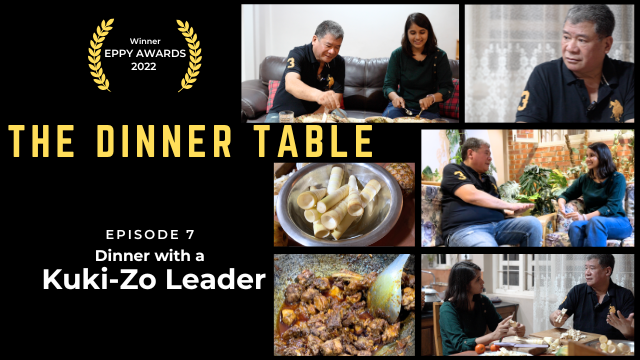DINNER WITH A KUKI-ZO LEADER | Demand for Autonomy
The Dinner Table docuseries by Harshita Rathore
September 21, 2024
By Harshita Rathore
It's been over 16 months since ethnic violence erupted in the northeastern state of Manipur, involving the majority Meitei community and the Kuki-Zo tribes. The resulting divide is so severe that an unofficial border has effectively separated the two communities within the state. As the violence carries on, efforts by the state and central governments to resolve the crisis appear minimal, and the future remains uncertain. To gain insight into what lies ahead, host Harshita Rathore sat down for dinner with a Kuki-Zo leader, Dr. Chinkholal Thangsing, who heads the Kuki People’s Alliance. Affectionately known as Dr. Lal, he proposes a solution he believes could potentially lead to lasting peace.
Tensions in Manipur between the Kuki-Zo and Meitei people escalated due to disputes over land rights and identity-based privileges protected by the Indian Constitution. The Kuki-Zo inhabit the resource-rich hills, where laws prohibit non-tribals from purchasing land, hindering government efforts to grant extraction contracts to corporations. This has consistently put successive governments at odds with the Kuki-Zo.
In 2017, the Hindu nationalist Bharatiya Janata Party (BJP) won Manipur's state elections and began actions perceived as attempts to seize Kuki-Zo land, resulting in clashes with police. In April 2023, the Manipur High Court ordered the government to consider classifying Meiteis as tribal, allowing them to buy land in the hills. The Kuki-Zo viewed this as a move to displace them, leading to a mass rally on May 3, 2023, which sparked violence fuelled by rumors of atrocities against Meiteis. This ignited widespread retaliatory attacks against the Kuki-Zo, including killings and the burning of homes and churches.
The most intense violence occurred over three days in May 2023, resulting in over 100 Kuki-Zo deaths, with ongoing unrest for over 18 months and at least 222 Kuki-Zo deaths by December 2024. Ethnic segregation has intensified, with heavily guarded buffer zones and the formation of Kuki-Zo armed civilian guards due to distrust of the police.
The conflict has led to severe humanitarian crises, including economic hardship, lack of healthcare and permanent displacement of tens of thousands of Kuki-Zo people in Churachandpur district and Meiteis in Imphal valley. Isolation of Churachandpur and other Kuki-Zo areas has caused shortages of essential goods and inflated prices, while displaced families struggle to rebuild their lives.
The Kuki-Zo are demanding a separate Union territory governed by the central government and the resignation of Manipur’s Chief Minister, Biren Singh, who is implicated in orchestrating the violence through a leaked audio recording under Supreme Court review. Despite the deployment of tens of thousands of security personnel, no effective peace plan exists, and mutual distrust hampers the prospects for coexistence.

